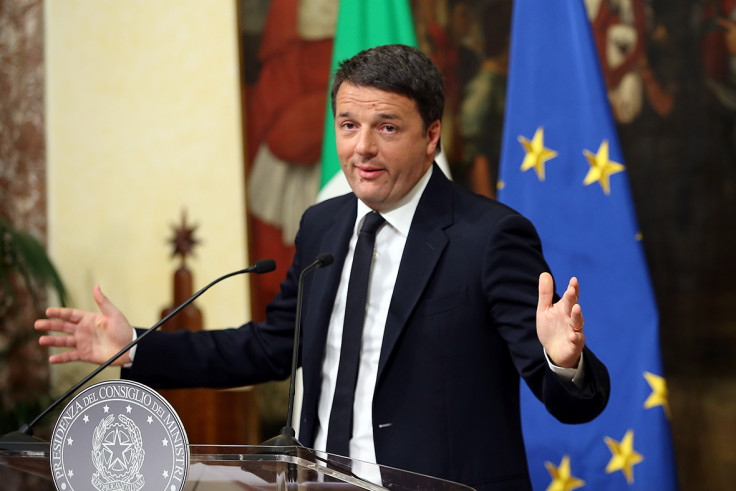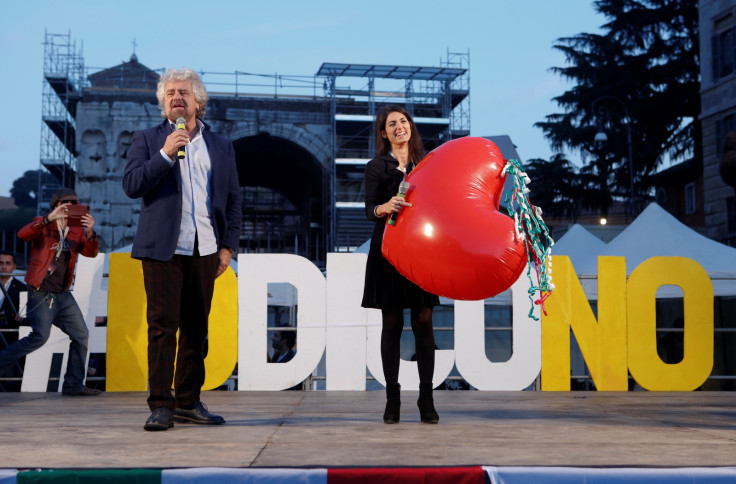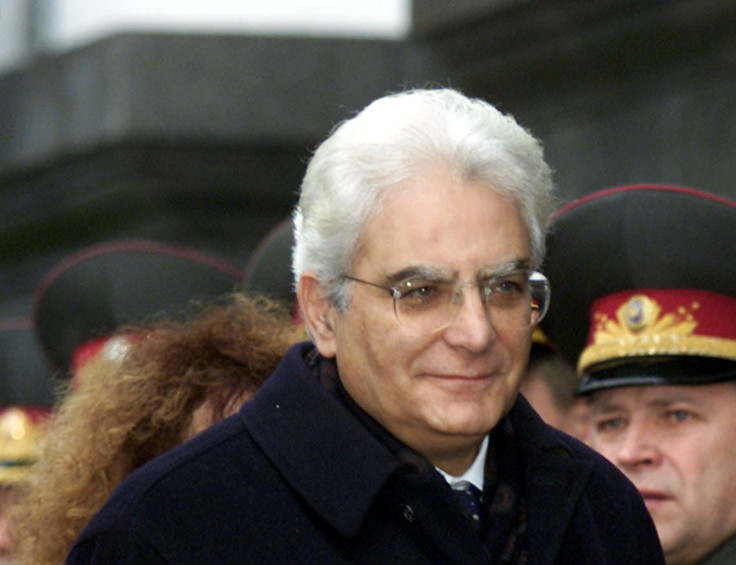Italy's president has to make a crucial decision to solve his country's political turmoil
Italy needs a working government soon, as there are pressing legislative matters to solve.
The message that came from the Italian ballots on Sunday (4 December) was a loud "No" to the proposed changes to the constitution advanced by Prime Minister Matteo Renzi. While the question proposed in the referendum now has an answer, many more question marks hang over Italy's future; first and foremost – who will succeed Renzi?
The high voting turnout (65.47%) and the clarity of the result (59.11% rejecting the proposed changes) leaves Renzi with nowhere to go but the Quirinale, the hill in Rome where the President of the Republic Sergio Mattarella resides, to hand in his resignation.
Renzi, whose time as prime minister lasted just over 1,000 days, strongly personalised the vote and had to recognise the result around an hour-and-a-half after the polling stations closed and the first exit polls projected a colossal defeat for him. "I lost," he admitted, struggling to fight back tears. "My government experience ends here."
Having said in January that if he lost the referendum he would resign, Renzi made a point of sticking to his original promise as to keep up the reputation of a man of his word, a different kind of politician from those who never admit defeat and never change. The 10-minute speech seemed to leave no doubt over the irreversibility of his decision. "I will welcome with institutional friendship and a big smile and a hug my successor, whomever he will be," he said.
Italy needs a working government soon, as there are pressing legislative matters to solve. One of them is the law on financial stability that has only been approved by the lower house of parliament and has yet to be approved by the Senate. The other is the electoral reform, the Italicum, which became law in July 2016 but does not define procedures to elect the Senate, as this was expected to materialise in the constitutional changes that were rejected in the referendum.

The problem with the voting system
Under the current system, if Italy were to vote tomorrow in a general election, the lower house of Parliament would be elected with the Italicum system, which gives a clear majority of seats to the party that wins the vote, but the Senate would be elected with a proportional system called "Consultellum", in which is unlikely for a party to win a clear majority.
As a result, there may be two different majorities in the two houses of parliament, leading to ungovernability.
Mattarella could still decide to charge Renzi with forming a new government, but the prime minister said in his speech that those who won should offer suggestions for what to do next, specifically in terms of electoral reforms.
Also considering the large margin of defeat for Renzi's side in the referendum, Mattarella will more likely be looking to find another leader to give this role to, forming a transition government to the next election.
He could opt for the Minister of Economy and Finances, Pier Carlo Padoan, who cancelled his attendance to meetings of European ministers that were due to take place on 5 and 6 December in Brussels to stay in Italy. Another possibility would be the appointment of the President of the Senate, Pietro Grasso.
On the opposition front, those who backed the No vote that defeated Renzi were motivated by different reasons, and their priorities remain unaligned. Immediately after the exit polls, Northern League leader Matteo Salvini, who has a seat in the European Parliament but not in the Italian one, called for Renzi's resignation and new elections.
A similar request came from Beppe Grillo, the leader of the Five Star Movement, Italy's main opposition party. "Italians need to head to the polling station as soon as possible," he wrote in an entry in his blog, his preferred channel of mass communication. According to him, a law defining the procedures for the election at the Senate could be approved in the next week.
In a press conference, the leaders of the Five Star Movement parliamentary group echoed the message and said they were "ready to make all the necessary steps to go to the next elections."

The Five Star Movement remains the most threatening rival to Renzi's Democratic Party. Polls show that the two parties would each command around 30% in new elections, but in a second round of votes in which the two would go head-to-head with no other options, the Five Star Movement could command around 52%, to the Democratic Party's 48%.
The referendum result
The preference for the No vote reached 59.11% against the 40.89% of votes for the Yes. From the North to the South of the country, the No vote triumphed in 17 of the 20 regions of Italy, with the backing of almost 20 million voters.
From Berlusconi's centre-right party Forza Italia, there was less of an urgency to call for new elections, knowing that their polling chances are much lower. One of the party MPs, Renato Brunetta said commenting on the referendum results that it was important Renzi left, but the Democratic Party could stay in power with another leader.
Renzi's battle is not over. He remains the leader of the Democratic Party, where he now has to face a minority within the party who wants to challenge his leadership at the next party congress in 2017. In January, Renzi mentioned that a defeat in the referendum would put an end to his political career, but his resignation speech did not mention leaving the party leadership, and it is unlikely he will do so willingly.
"It is still a big tool of power for him to help him stay in the game," Sofia Ventura, political expert and associate professor at the University of Bologna, told IBTimes UK.
Roberto Speranza, who leads the inner-party opposition to Renzi, said: "We never asked for Renzi's resignation. We acknowledge that the prime minister chose that road and now we have maximum trust in the president. The Democratic Party has 400 members of parliament, we can only be the source of governability."

All eyes are now on President Mattarella and the decision he will make in terms of appointing the next prime minister. Whomever gets the mandate, will have to then face the vote of confidence in the two houses of parliament. It will be in Italy's interest to do so as soon as possible, although experts do not expect to have new elections called before 2018, due to the lack of clarity over the voting system, and the absence of contenders to Renzi's leadership.
For those that worry about the prospect of a government of the eurosceptic Five Star Movement, professor Ventura said it is not one for the short term and also, that the party's eurosceptism remains ambiguous. "It's true they are not very predictable, so I understand the concerns about uncertainty and instability," she said.
On this point, she invited international observers to be cautious in thinking stability is what Italy needs. "From abroad there is an idea that Italians are a people that need stability, but stability is not a value in and of itself, it is about the progress and development it can deliver. And maybe that is a way to interpret the No vote. Italians did not think the changes proposed by Renzi's government were a desirable stability."
© Copyright IBTimes 2025. All rights reserved.






















